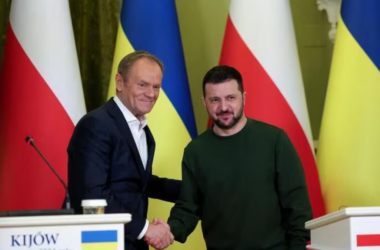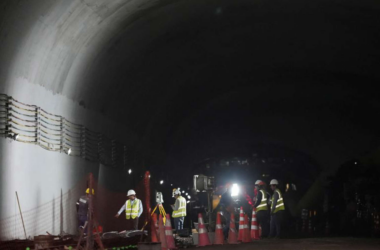Germany’s conservative alliance, comprising the Christian Democratic Union (CDU) and the Christian Social Union (CSU), has emerged as the leading force in the European Union elections. According to projections by German public television the CDU/CSU bloc secured 30.2% of the vote.
The far-right Alternative for Germany (AfD) party achieved a significant boost, finishing in second place with an estimated 16% of the vote. This marks a 5 percentage point increase from their performance in the 2019 European Parliament election.
Conversely, Germany’s governing parties experienced a considerable decline, impacting Chancellor Olaf Scholz’s leadership. The Social Democrats (SPD), Greens, and Free Democrats (FDP) collectively garnered less than one-third of the vote. Scholz’s SPD polled only 13.9%, marking its worst post-World War II result in a nationwide vote. The Greens saw their support drop to 11.9%, a significant fall from their peak of 20.5% five years ago.
Andrea Römmele, a political science professor at the Hertie School in Berlin, noted the anxieties among voters regarding economic security and immigration, which the AfD effectively capitalized on. “People have anxieties about their future, about not earning enough, and about having too many migrants and asylum seekers in their cities,” Römmele told the Associated Press.
Friedrich Merz, the opposition leader, celebrated the Union bloc’s victory, labeling it a serious defeat for Chancellor Scholz. Some conservatives suggested Scholz should call a parliamentary confidence vote or consider new elections, although these proposals were dismissed by the governing parties.
Römmele remarked on Scholz’s significant investment in the campaign, implying that the poor results were a personal setback for him. Despite speculation about the possibility of replacing Scholz with the more popular Defense Minister Boris Pistorius as the SPD’s candidate in the next election, Römmele believes Scholz is unlikely to step aside, regardless of internal pressures.








